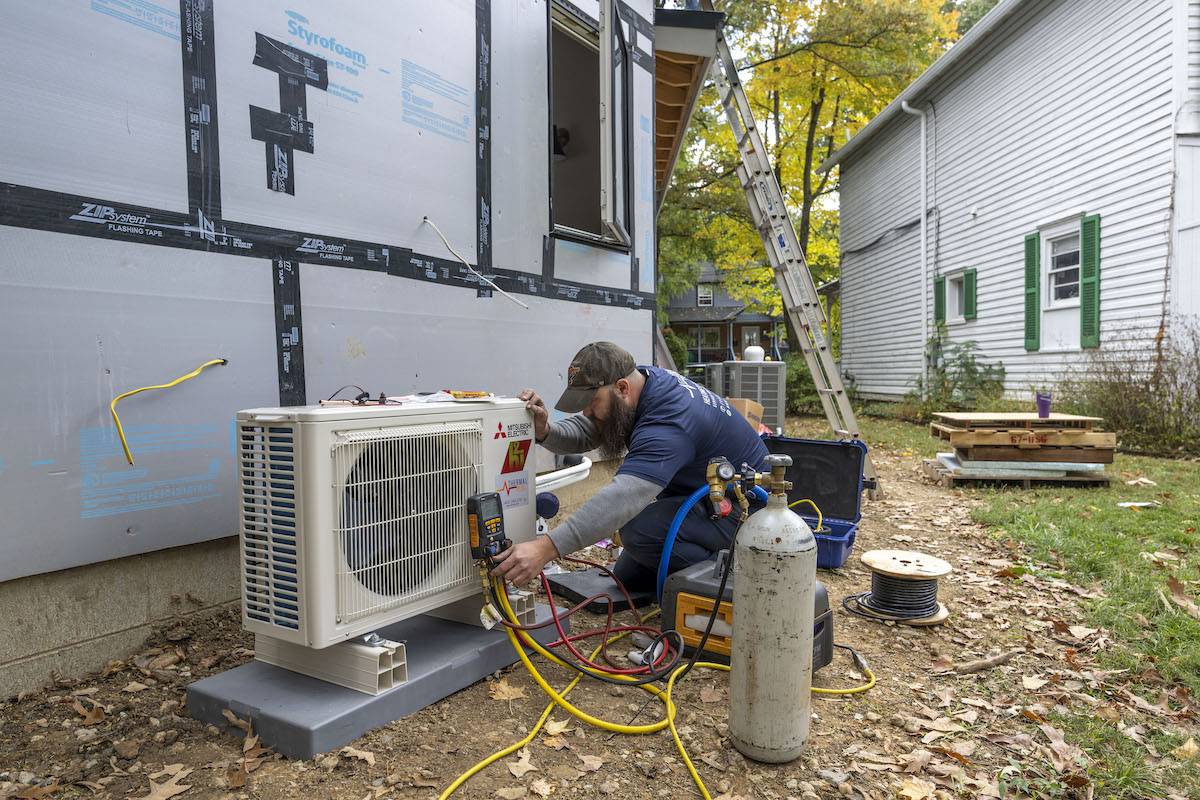All new construction in Washington state, both commercial and residential, will require high-performance heat pumps beginning July 2023, making it the second state to do so.
The Washington Building Code Council made the ruling earlier this month, tacking new home construction to the already established commercial ruling. The council voted to enact the requirement for new commercial construction in April this year.
Heat pumps rely on the movement of cold and warm air between the inside and outside of a home and are powered by electricity. It can be used for both air conditioning and heating.
RELATED: 3 Things to Know About Geothermal
“Since they move heat around rather than generating it from burning something, they are much more efficient than combustion heating,” Jonathan J. Buonocore, assistant professor in the Department of Environmental Health at the Boston University School of Public Health told Popular Science. “By replacing a natural gas furnace, oil heater, wood stove, or some other combustion source, you’re benefiting the environment by replacing a source of emissions of greenhouse gasses or other air pollution.”
According to local news, the vote came after months of “contentious” public testimony. The council voted 9-5 in favor of the requirement. One argument against the ruling was that it would push home prices higher.
Other state mandates include Maine’s October 2021 promise to installing 100,000 heat pumps by 2025 and California’s statewide electric heat pump requirement also starting in 2023.
Comments (3)
Add new comment
Related Stories
Peppermill Finish
NAHB Announces Action Plan for Housing Affordability
Six of the proposed 10 action items are important to residential remodelers
Re-Bath Expands its Reach with New Franchise
The company signs a deal with brothers who are first-time franchisees
NARI Renames Awards Program
The awards program has a new name, but continues its tradition of recognizing the best in residential remodeling
Registration Open for Women in Residential+Commercial Construction Conference 2024
Join 300+ women in construction for three days of impactful idea-sharing and networking in Phoenix
Power Home Remodeling Expands Financing Offshoot with $400M from Goldman Sachs
Industry-leading home improvement company Power plans to grow its fintech offshoot fivefold with new investment
Great Day Improvements Acquires LeafGuard and Englert
Leading home improvement company Great Day Improvements purchases two major brands from private equity firm Audax
Metros with the Highest and Lowest Remodel ROI
First-time homebuyers can find fixer-upper listings priced between 5 to 10% lower than move-in ready homes. The high return on investment of these projects shows that remodeling remains a strong option to navigate the current housing market
Latest Private Equity Activity Signals Continued Strength in Home Improvement
A hot month for private equity means the industry remains opportunity-rich
Pro Remodeler Wins Two Prestigious Jesse H. Neal Awards
The editorial team was honored with one of B2B journalism's most prestigious awards in the categories of Best Subject-Related Package and Best Range of Work by a Single Author














Electrification
Submitted by Mark Duncan (not verified) on Wed, 12/21/2022 - 17:09
Electrification
This assistant professor's statements should be clarified. If natural gas is used to generate the electricity to the home the electricity is not more efficient. Not to mention that it takes fewer therms of natural gas to heat a home than kilowatts of electricity.
inefficient
Submitted by Sam Fox (not verified) on Thu, 01/12/2023 - 08:16
inefficient
In climates where the temps get below 32 a back-up heat source is required as a heat pump will struggle to heat to a comfortable temperature. Electric resistance coil heater is the typical go to on this scenario. if you are good with a $1000 electric bill in the winter months for your home than you'll love a heat pump.
Heat pump and temps
Submitted by Bill Deal (not verified) on Sat, 02/25/2023 - 09:55
Heat pump and temps
As a custom builder I have installed 2 Cold weather Mitsubishi heat pumps Near Chicago and in Michigan. Each of these heat pumps operated efficiently at below zero temps without the electric backup operating, I know this as I had the units turned off specifically to find out how well the heat pump operated at below zero temps, both units held a set temp of 69 degrees. The literature says they will operate efficiently down to -4 degrees